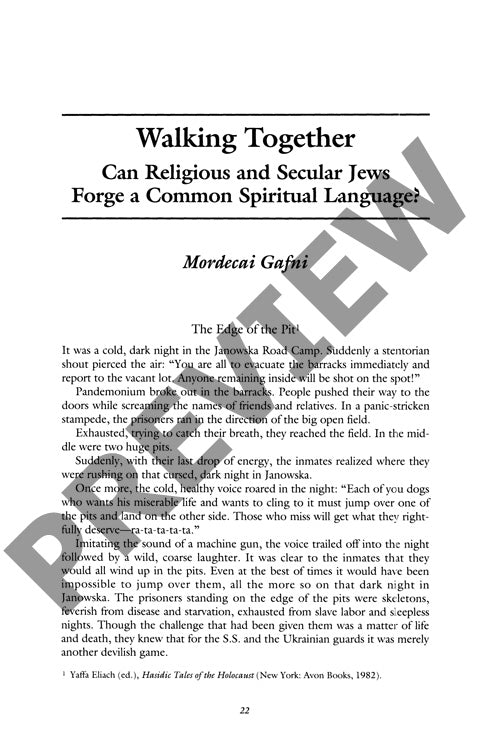Walking Together Can Religious and Secul
Couldn't load pickup availability
Can religious and secular Jews forge authentic spiritual connections while maintaining their distinct identities? A philosophical model termed "Holkhim Yahad" (Walking Together) reveals promising common ground through shared covenantal bonds and ethical commitments. Drawing upon Rabbi Joseph B. Soloveitchik's distinction between the Covenant of Egypt (brit goral - covenant of fate) and the Covenant of Sinai (brit ye'ud - covenant of destiny), this analysis examines classical halakhic sources, contemporary rabbinic responsa, and philosophical frameworks to bridge seemingly irreconcilable differences. Through examination of four halakhic approaches - theological, intellectual, existential, and sociological - modern rabbinic authorities have reinterpreted traditional sources mandating separation to uphold the obligation of "loving every Jew" in today's context. When contrasted with Christianity, Marxism, and secular humanism, both religious and secular Jewish thought reveals shared spiritual foundations: privileging ethical action over faith alone, rejecting moral relativism, and embracing tikkun olam (repairing the world). While divisions persist regarding halakhic observance, fundamental commitments to ethical monotheism, human dignity, and historical responsibility create potential for meaningful dialogue. Recognition of shared covenant and destiny enables a "Walking Together" approach that fosters authentic engagement while preserving religious integrity and avoiding relativistic pluralism.

More Information
-
Physical Description
-
Publication Information
Published 2000
ISBN
-
Publication Credits
Mordecai Gafni

